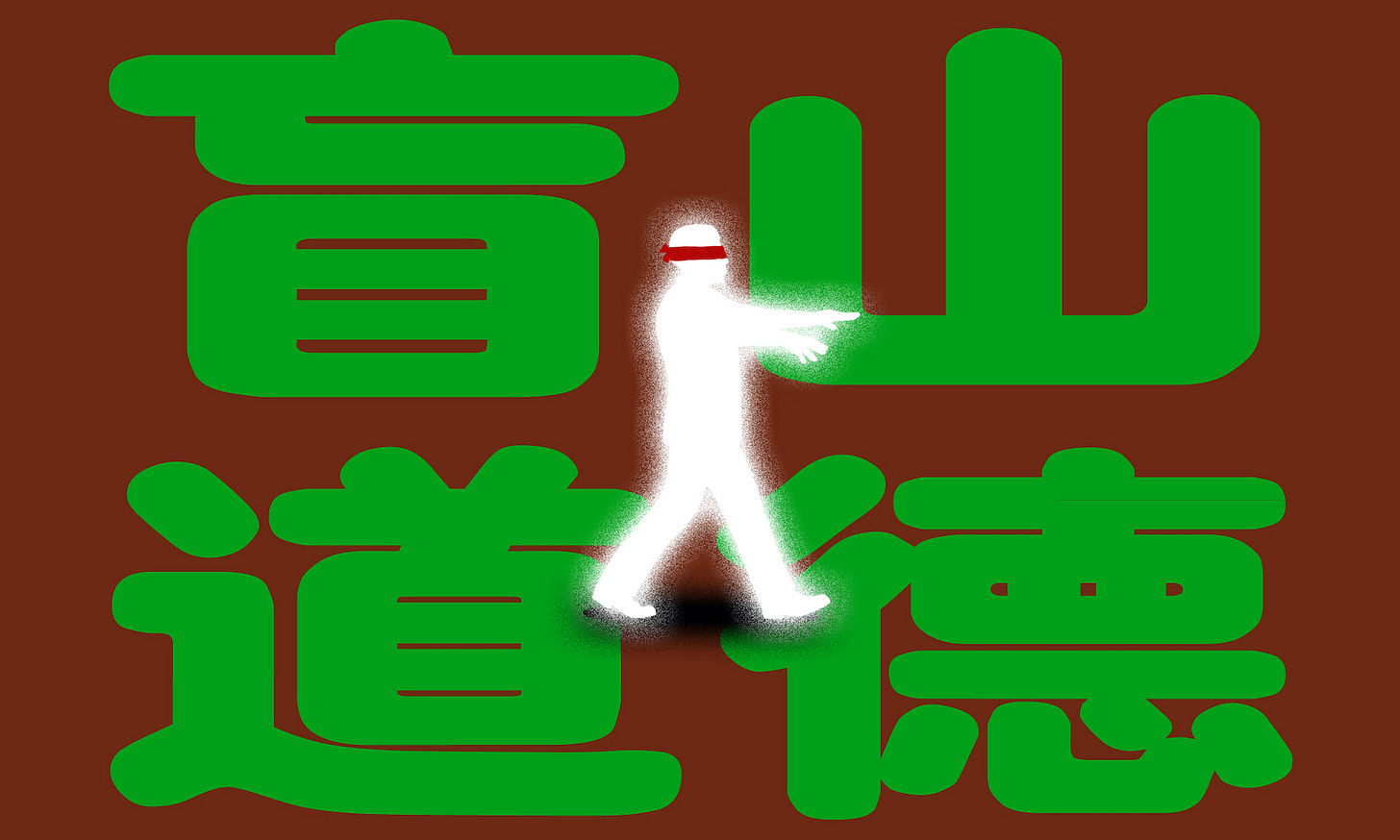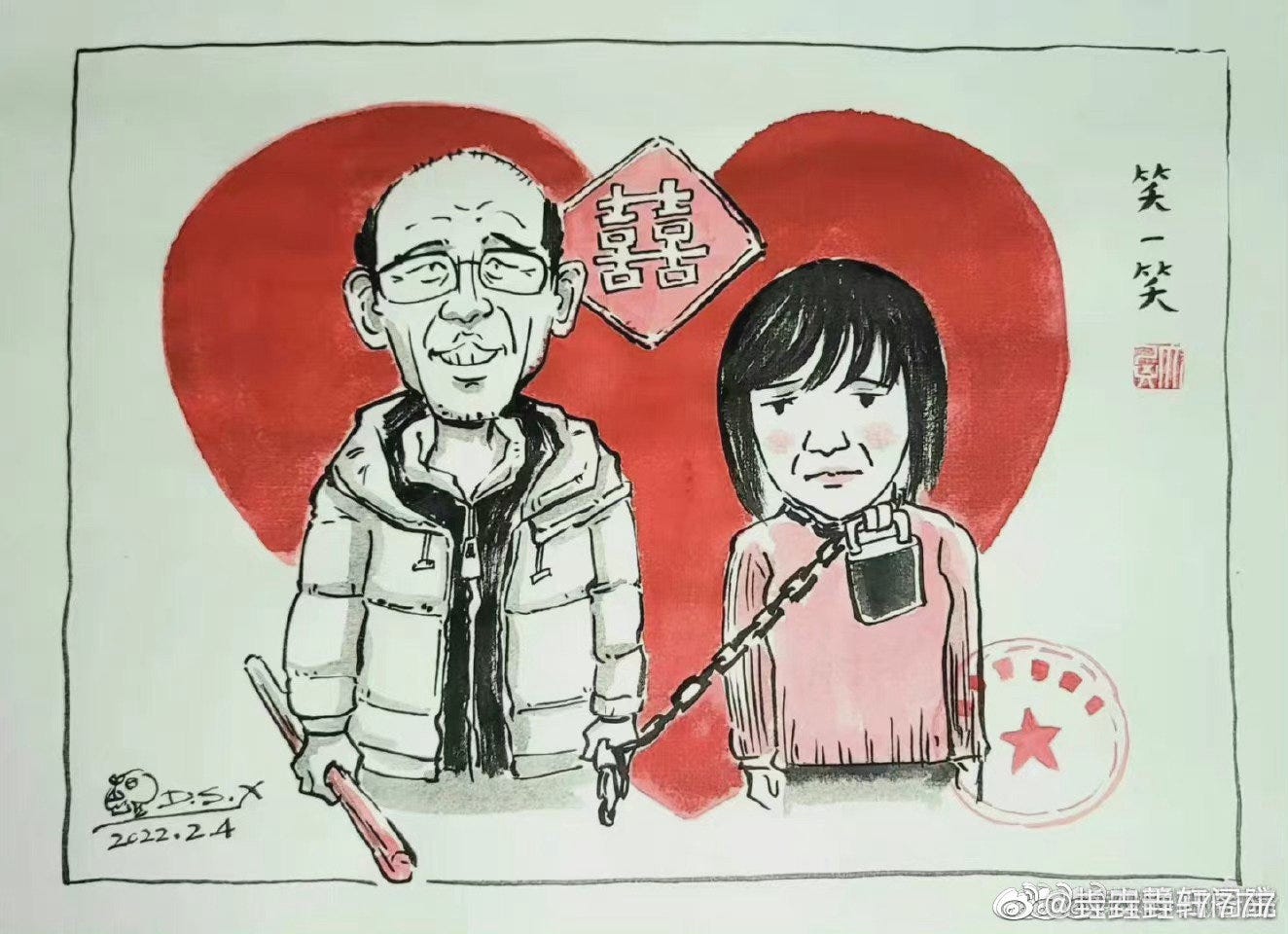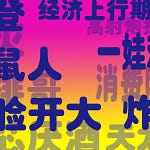Welcome to RealTime Mandarin—a multimedia resource to immerse you in the latest Chinese language trends, inspire you to practice and improve your Mandarin every week, and empower you to communicate with confidence.
Subscribe now to get the next issue straight to your inbox!
Blind Mountain 盲山 (máng shān) is a movie first released in Hong Kong in 2007, directed by Lǐ Yáng 李杨. It tells the story of Bai Xuemei, a young graduate who is kidnapped, trafficked and sold as a bride to a man in a village in Shaanxi Province.
The movie has been the subject of much discussion (Weibo - in Chinese) recently as the story of a mother of eight from Xuzhou, shackled by her neck and locked up in a freezing shed, caused widespread outrage on social media.
The phrase, ‘Blind Mountain morals’ (盲山道德 mángshān dàodé), has been used to describe the plight of this poor women, and others like her who are the victims of human trafficking in China.
It means ‘morally blind to outsiders who are trafficked’. I explain more about it in SupChina’s Phrase of the Week column.
Experts reckon there are a number of cultural and societal issues that contribute to it, such as the number of older single men living in the poorer, more rural parts of China (iFeng - in Chinese).
This week we learn, use and understand the vocabulary to discuss Blind Mountain morals.
The Favourite Five
Here are five words and phrases that you need to know to understand and discuss Blind Mountain morals.
打光棍 dǎ guānggùn - being single, a man who can’t get married
兄弟几人中总有一两个打光棍,是代代相传的现象 - There’s always one or two brothers who don’t get married in a family. This is a phenomenon that’s seen in every generation.
光棍 guāng gùn - someone who is single
光棍节 guānggùn jié - Single’s Festival
村规民约 cūnguī mín yuē - autonomous administration of villages
因为他们的这个夫妻关系,只有在他们这个村里,才是受“盲山”式的村规民约保护的 - Because the relationship between this husband and wife is protected by villagers who are morally blind.
Note: the phrase is used pejoratively here, meaning the villagers are complicit in the abuse.
延续香火 yánxù xiānghuǒ - continuing the incense; continue the family line
为什么一代代人就是穷到必须从人贩子那里买媳妇,把“延续香火”“多生男娃”成为他们一辈子的人生目标呢 - Why, through the generations, are there people who are so poor they feel they have to buy a wife from human traffickers, in order to achieve their life goal of continuing their family line and have lots of sons?
水落石出 shuǐluò shíchū - when the waters retreat, the rocks emerge, the whole thing comes to light
希望真相早日水落石出 - I hope that the truth is revealed soon.
Note: This was a popular comment on social media this week in response the the Xuzhou government announcing the investigation.
野马套上笼头 yěmǎ tào shàng lóngtou - a wild horse put in a bridle
往往把某位不安分的男青年娶上媳妇说成“野马套上笼头” - Marrying off a certain young man who won’t behave himself is like trying to bridle wild horse.
More: 不安分 bù'ān fèn - don’t behave oneself, difficult (see 5 Feb newsletter).
2. Consuming the Conversation
Basic vocab
To dig deeper into conversations about human trafficking, you need to understand the basics first.
娶妻 qǔ qī - get married, or take a wife (men)
拐卖 guǎi mài - ‘turn sell’ - trafficking
彩礼 cǎi lǐ - betrothal gift, the price a man will pay for a bride
人贩子 rén fàn zi - human trafficker
农耕社会 nónggēng shèhuì - agricultural society
重男轻女 zhòngnán qīng nǚ - preference for boys over girls
Useful words
Beyond the basics, here are some simple sentences to practice.
买主 mǎi zhǔ - the buyer
她被骗到大山深处、被“买主”用铁链拴住 - She was tricked into going into the countryside where she was chained by her ‘buyer’.
村俗 cūn sú - village customs
她挑战了那黑暗的村俗 - She challenged the dark customs of the village.
滋长 zī zhǎng - grow, cultivate
那就是滋长在这些“盲山”当中的、在我们看来畸形而古怪的乡村道德 - This warped and grotesque village morality was cultivated and allowed to grow in these ‘Blind Mountains’.
轻蔑 qīng miè - contempt, scorn
对法律与普世道德怀有一种瞧不起和轻蔑:装什么装,你们跟我还不一样 - 什么装,你们跟我还不一样 - They look down on the law and universal morals, holding them in contempt. You behave as if you are better than everyone, but are you any different?
Grammar: this is a nice structure for a rhetorical question
Note: qīng miè is a common ‘Wolf Warrior’ word you will see in MFA press statements
罪孽 zuì niè - sin
更是他们难以离开的生活方式,是他们罪孽的报应 - This is a lifestyle that they can’t easily give up. It’s their punishment for their sins.
Note: 孽 niè - evil
Three-character phrases
In the conversations within the two Chinese articles recommended above, there are some fantastic colloquial phrases - including these three-character words you can throw into everyday discussions:
鸣不平 míng bùpíng - respond to something as an injustice
我的父亲常为他鸣不平说:“我二哥能给五个儿子都娶亲成家,做到这一点很不容易” - My father would often defend him saying: “My second brother can have five kids and they all have got married. This is not easy”.















